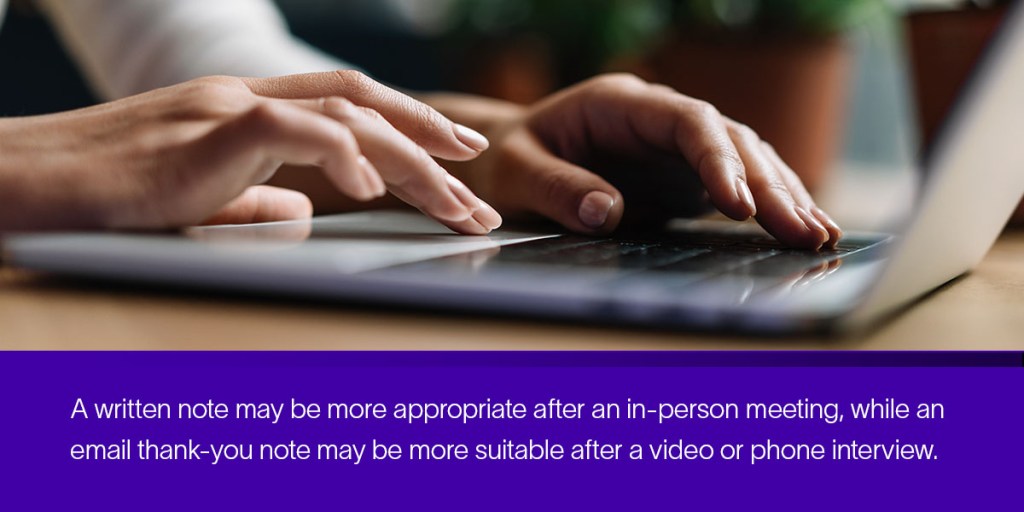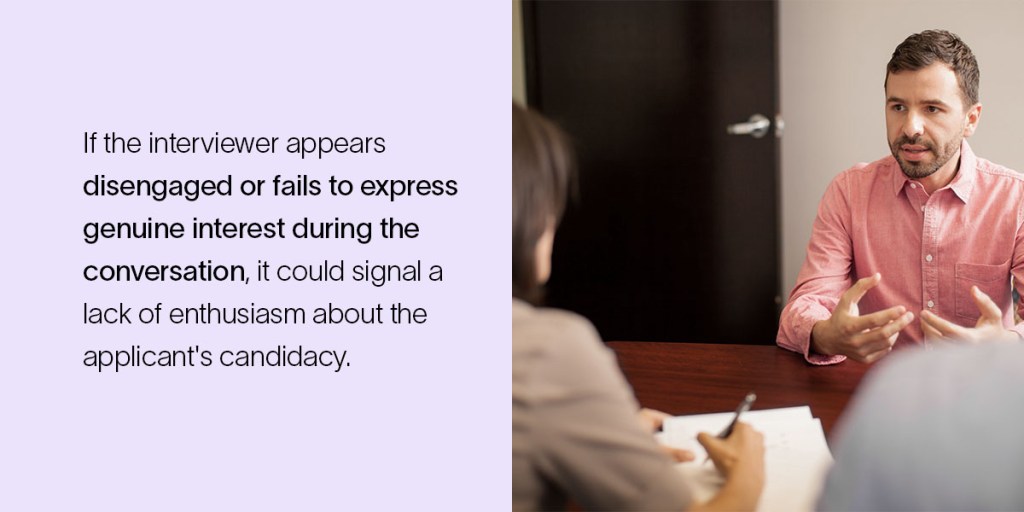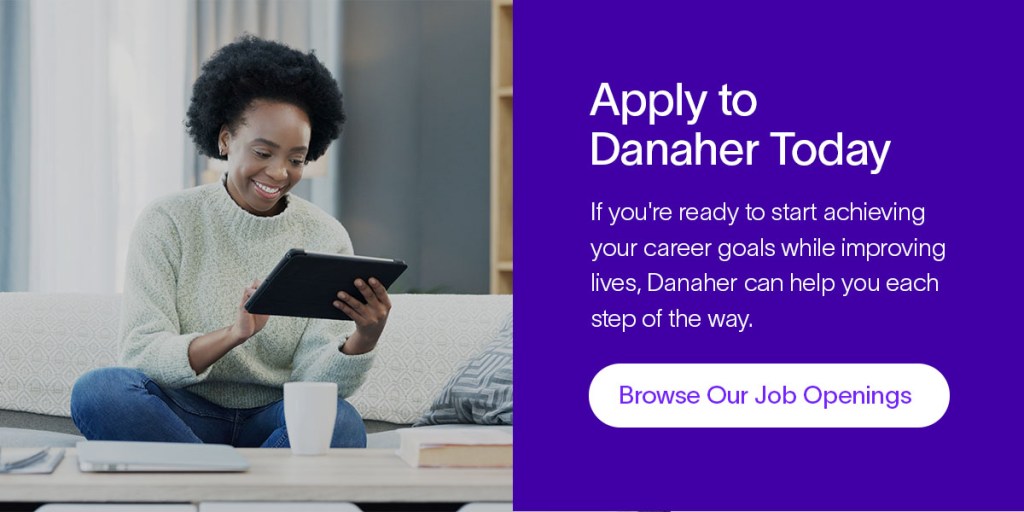In the fast-paced world of job hunting, interviews remain essential. We’ve all heard the best practices before and during a job interview — dressing professionally, maintaining eye contact, answering practice questions, researching the company and so on. But what happens after the interview? We’ve created this list of essential post-interview tips to help job candidates leave a lasting impression on employers and hiring managers.
Table of Contents

The post-interview process offers an opportunity to reinforce professionalism, demonstrate enthusiasm and stand out from other candidates. It allows applicants to leave a lasting impression on potential employers, proving their interest in the role and the company.
Additionally, following up after an interview can provide valuable insights into the hiring timeline and decision-making process, helping candidates stay informed and engaged throughout the job search journey.
Those few days following a job allow individuals to take the time to:
Spending time reflecting on interview performance, writing a thank-you note, looking up the interviewer on LinkedIn and noting important things about the job and company can help candidates make a lasting impression and solidify themselves as upstanding candidates. Below, we’ll cover what happens after an interview and constructive steps for applicants.
A candidate should gauge what the next steps will look like. They can ask the interviewer about the following details:
Exchanging phone numbers or email addresses allows interviewees to get ahold of the hiring manager if needed. For instance, if a candidate doesn’t hear from the employer within the specified time window, they might consider reaching out and politely inquiring about the status of the interviewer’s decision.
The employer also needs the candidate’s contact information so they can reach out once they’ve made a decision. Exchanging contact information serves as a fundamental post-interview step.
Following the interview, a candidate should jot down their answers to any questions they remember. They can review their responses and how confident they feel about them. Additionally, candidates can reflect on questions or topics they wish the interviewer would have asked.
Evaluating performance helps the candidate note strong answers for future interviews and identify areas for improvement. It also helps reveal untapped talking points.
After the interview, the candidate should consider their overall perception of the company and job. Have their feelings changed since they first applied? These reflection questions would be beneficial to think about after an interview:
In addition to writing down answers to questions and discussion points for future interviews, interviewees can note other things worth remembering about the company. Some examples include:

Writing a thank-you note or email after the interview expresses a candidate’s gratitude for the interviewer’s time and willingness to speak with them. Thank-you notes allow applicants to reaffirm their interest in the company and position, whether handwritten or sent electronically.
A written note may be more appropriate after an in-person meeting, while an email thank-you note may be more suitable after a video or phone interview. Interviewers will also receive an emailed message more quickly. Timely receipt should be a vital consideration if there’s a limited timeframe for the hiring decision.
However, a formal handwritten card might be more acceptable in some industries. If a candidate has any connections in a similar industry, they might consider asking that connection for advice. Whether a written or typed-out message, proofread the letter carefully to ensure it’s free of typos and grammatical errors.
After the interview, connect with the interviewer on different social networking platforms, such as LinkedIn. An interviewer accepting the request could indicate their interest in learning more about a candidate. Additionally, applicants with extensive professional networks can learn about job opportunities faster than their counterparts who solely use job portals during their search.
Connecting on LinkedIn can help an interviewee sell themselves to the employer. Recruiters and hiring managers can learn more about the candidate’s experiences and achievements by viewing their LinkedIn profile. The candidate should regularly share posts, engage in discussions and update their profile information to build and reinforce their personal brand.
Employers will more likely remember a candidate with a unique brand and accomplishments. As a result, the interviewer may be more inclined to consider that candidate for the role. In fact, a job applicant with a comprehensive LinkedIn profile is 71% more likely to get an interview.
Even if an interviewee ends up in a different role and organization, connecting with the employer on social media still serves as a valuable part of the post-interview timeframe. It helps the candidate grow their personal network and keep an eye out for future opportunities.
If the employer, recruiter or hiring manager requests any additional supporting documents, be sure to send them after the interview. For example, the interviewer may ask an applicant to provide the following resources:
Try to organize and submit these documents as soon as possible. Like always, ensure up-to-date, grammatically correct and typo-free text.
If a candidate included references in their application, they should inform these references that a company representative may contact them after the interview.
Ideally, the candidate would have asked these individuals about using them as references before applying for the position. Even so, it’s a common and courteous practice to inform the references that they may receive a phone call. That way, they know to expect it.
The following signs suggest an applicant might have landed the job.
Interviews focus solely on work matters, with interviewers usually following a standard set of questions to quickly evaluate applicants. However, a shift to more relaxed conversation may be a good sign. This transition could indicate satisfaction with an applicant’s qualifications and an interest in getting to know them personally.
Introducing an applicant to other team members indicates the interviewer views the applicant as a potential cultural fit and wants to see how they’ll integrate into the team dynamic.
If the interviewer initiates a discussion about the next steps in the hiring process, the interview likely went well. This proactive approach suggests they envision an applicant as a potential candidate and have begun planning the subsequent stages.
When the interviewer gives applicants their card with their phone number unprompted, they feel interested in maintaining communication. This gesture signifies an openness to further communication and suggests they view the candidate as a serious contender for the position.
A promising sign occurs when the interviewer asks about an applicant’s availability and readiness for the transition. They are already considering the applicant as a potential addition to the team and planning for potential onboarding.
Just like meeting the team, if the interviewer suggests showing an applicant around the building, it indicates that the interview went well. A tour of the building or office often means the interviewer wants to persuade the applicant to take the job.
Reaching out to an applicant’s references following the interview is a strong signal of serious consideration because it suggests the interviewer is conducting due diligence and actively evaluating the candidate’s suitability for the role.
Note that these signs, while not definitive, often point toward a positive outcome. Keep them in mind and maintain optimism throughout the process.
These signs could indicate that the outcome might not be in a candidate’s favor.

If the interviewer appears disengaged or fails to express genuine interest during the conversation, it could signal a lack of enthusiasm about the applicant’s candidacy. Applicants may notice disinterest if the interviewer shows closed-off body language or constantly checks the time. Other forms of disinterest can manifest as a lack of inquiries or details regarding the next steps in the process.
A shorter-than-expected interview may indicate that the interviewer has already made a decision, prompting them to conclude the conversation early.
Once an interviewer assesses an applicant’s skills and qualifications, they often shift the focus to promoting the company and the job opportunity. If the interviewer doesn’t provide detailed information about the role or fails to highlight its positive aspects, it suggests they may not see an applicant as a suitable candidate.
During an interview, one of the most frequently asked questions involves salary expectations. A disconnect between an applicant’s salary expectations and the company’s offer could indicate they want to find candidates who better align with their budget.
If the job posting remains active after the interview, it may be because the company is still looking for suitable candidates.
If applicants don’t receive any response to their follow-up inquiries or thank-you notes, it may suggest the company has moved forward with other candidates.
If the interviewer raises concerns about an applicant’s overqualification for the position, it could indicate that they perceive an applicant as too experienced or skilled for the role. This potentially leads them to consider other candidates.
Remember, while good to keep in mind, these signs do not guarantee that a company has moved on with its search!
Job seekers often wonder about the next steps after an interview, especially if they suspect they didn’t secure the position. Consider the answers to the following common questions.
While it varies from company to company, many employers do inform candidates if they’ve selected another candidate for the role. However, some organizations may not provide feedback due to the volume of applicants or internal policies.
Applicants can follow up within one to two weeks after the interview to express their continued interest in the position and inquire about the status of the hiring process. This demonstrates proactive engagement without appearing overly persistent.
Yes, reapplying for a position that the company lists again is acceptable, especially if a candidate has gained additional experience or skills since their initial application. In these cases, applicants should tailor their application to highlight any relevant updates and express genuine enthusiasm for the opportunity.
Candidates can typically continue pursuing other opportunities while waiting to hear back from the initial interview. Maintaining a proactive approach to the job search can increase the chances of finding the right fit.
After the interview, send a brief thank-you email within 24 hours. Express gratitude for the opportunity, reiterate interest and highlight memorable aspects of the interview.

If you’re ready to start achieving your career goals while improving lives, Danaher can help you each step of the way. Our team has developed innovative solutions in diagnostics, water quality, product identification and other areas.
We want to see others thrive in these fields and make a difference in the world, so we offer a plethora of opportunities to grow your skills and revolutionize the world of science and medicine. Browse our job openings and start applying today!